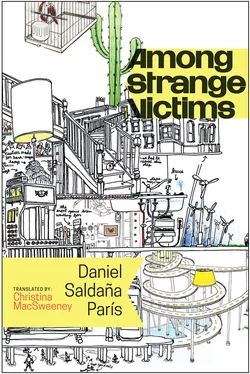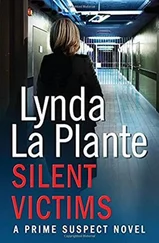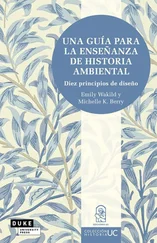Naturally, even when all the loose ends of the break-in have been tied, the motive for the misdemeanor will still need to be clarified. Either the poo has a meaning or it doesn’t. If it does, then it can be thought of as a sign and is waiting happily in its loathsome image for me to venture onto the course of its exegesis. If it has no meaning beyond that of perturbing me, it can feel satisfied with itself, can pull up its pestilential anchor and set sail for other, more fragile sensibilities.
I allow myself a rather unscientific deduction: if the intruder has keys or knows someone who does, he must also know me (I changed the locks as soon as I moved here), and if he knows me, he knows the shit on the bedspread would perturb me, but also that I could find in it a pretext for reflecting on other regions, perhaps less traveled, of human existence. The intruder is a sower of clues, a plotter of consequences, sufficiently wise to even anticipate these reflections of mine. Everything would seem to confirm that the intruder is the person who knows me best, the person most naturally close to me, my — until now — unknown brother.
 2
2 
Living with Cecilia is self-inflicted torture. Her scorn for me grows with the weeks, festering like a tenacious parasite in the inches of mattress that separate us each night. Sex, the last bastion of our reduced cohabitation, has, in this situation of overt antagonism, become watered down. In the mornings, Cecilia leaves for the museum, and I wander around the local streets in search of clues and evidence. (I think maybe some malevolent neighbor had been watching my movements for months before dealing the final blow. Now he amuses himself observing my increasing desperation, like a psychoanalyst who is entertained by the perversions of his patient, provoking them with decidedly indiscreet mother-related comments.)
My mother, unpredictably, interpreted my unemployment as a necessary pause in my existence, a moment for doubt and reflection that might, with a little luck, sooner or later return me to the paths of an enlightened life. She calls me more often now. Tells me a new stationery store has opened in Los Girasoles, and that the event, in its provincial magnitude, has generated a great deal of excitement among the natives. She says that not a few of her university colleagues have gone there to sport their most solemn apparel among the aisles of indelible-ink pens. I suspect she is lying, that my mother wants to seduce me with stupid stories so that I’ll yield to the folksy nature of her anecdotes and move to Los Girasoles. Once there, she would undoubtedly do her utmost to convince me of the need to enroll in a degree program: there is no better way, in that town, of killing time. She will attempt to convince me of the advantages of divorce. Or rather, the disadvantages of marriage. Of the inherent machismo of the very idea of marriage, the senselessness of stable relationships, the enormous number of marriages that fail or end in murder. She will explain that, according to research, the only type of marriage that avoids all these pitfalls is the marriage between homosexuals, which is already legal in the capital. She’ll attempt to convince me to go bi. She’ll give me flowers. Dresses. Plastic pricks with more or less realistic veins and bulges. No. I can’t go to Los Girasoles on my own. If I do, it will be with Cecilia, who at least is a woman, and my wife, and is conservative, and conservatism is a positive force in a world that is falling apart at the seams. Conservatism is the keystone of a wall. The conservative person is an exception, a landmark. A turd in the middle of a tiger-striped bedspread.
This idleness has brutally confronted me with the meanness of my spirit. Not only do I spend a great deal of time thinking stupid thoughts, but the curse of the ability to reflect obliges me to recognize that I spend a great deal of time thinking stupid thoughts. An acute case of misanthropy is gestating somewhere deep within me: I conceive my relationship with humans as a, to this point, necessary evil, the reasons for which are increasingly less clear. At this stage in the game, I consider full communion with a group of delightful people to be completely unattainable. The loss of my job and the resulting isolation have only confirmed my belief that the inexorable path I follow leads to an unprecedented, unpredictable level of misery. The only type of communion with people to which I can aspire is through objects. For example, by observing the tea bags I collected at one time, which simultaneously refer me to the humans who produced them and the humans who saw me consume the product. Then I understand that society as a whole is a machine, kept perfectly oiled by relationships of courtesy and the stock and household appliance markets. And I understand that humans are good.
Cecilia returns from the museum laden with supermarket bags. From her grim expression, I suspect her patience is reaching its limits. As soon as she comes through the door, she starts making sarcastic comments intended to wound my manly pride. Fortunately I’ve never developed any such pride, and I find no satisfaction in defending a dignity I don’t possess, so I observe Cecilia with a mixture of pity and indifference, accepting that, within her scale of values, the situation of having a useless husband is a deeply unhappy one.
All of a sudden I am invaded by empathy: I comprehend I’ve made this woman unhappier than she was before. As a form of compensation, I tell her that tomorrow, one way or another, I’ll get together the money to take her to Acapulco for a few days. She quite rightly says Acapulco is a horrible city, full of garbage and death and vulgarity and ferocity and drug trafficking and places where they’ll give you a blowjob for two pesos (she doesn’t mention that last one, but it’s true), and that she’d prefer to have a holiday someplace where there’s not even the remotest chance of finding a corpse with its throat slit on the sand, a few yards from the filthy hotel. So I suggest we pay a surprise visit to my mother in Los Girasoles. Cecilia is concerned about the insuperable distance between my mother and me. It seems an idyllic opportunity to strengthen our family bonds; she is satisfied.
 3
3 
Cecilia had already expressed her wish to own a car. Now, with the December holiday season getting closer, and the trip to Los Girasoles an inalterable fact, her expression of that desire has taken on a more urgent tone. While she understands our economic situation is, to put it mildly, precarious, she continues to go on about the car, as if setting out to needlessly squander money were a means of evoking fortune. I share the underlying current of magical thinking on which this logic is based, and that’s why I love Cecilia. She is, in her superficiality, everything I envy in flexible souls. So I borrow what seems an enormous sum from a cousin and buy Cecilia a small, red, secondhand car.
Moments of happiness. When it seems as if everything is exasperation and fear, as if the life I’ve been leading will fall apart around me at any moment, that’s when I finally enjoy minor, everyday pleasures. I’ve almost completely forgotten the grotesque episode of the poo on the bedspread. At least I don’t think about it so often, and I’ve decided to temporarily abandon my investigation. Like a parting of the waters, a sign of the need for change, the shit on the bedspread is a positive, fortuitous event.
Читать дальше

 2
2 







